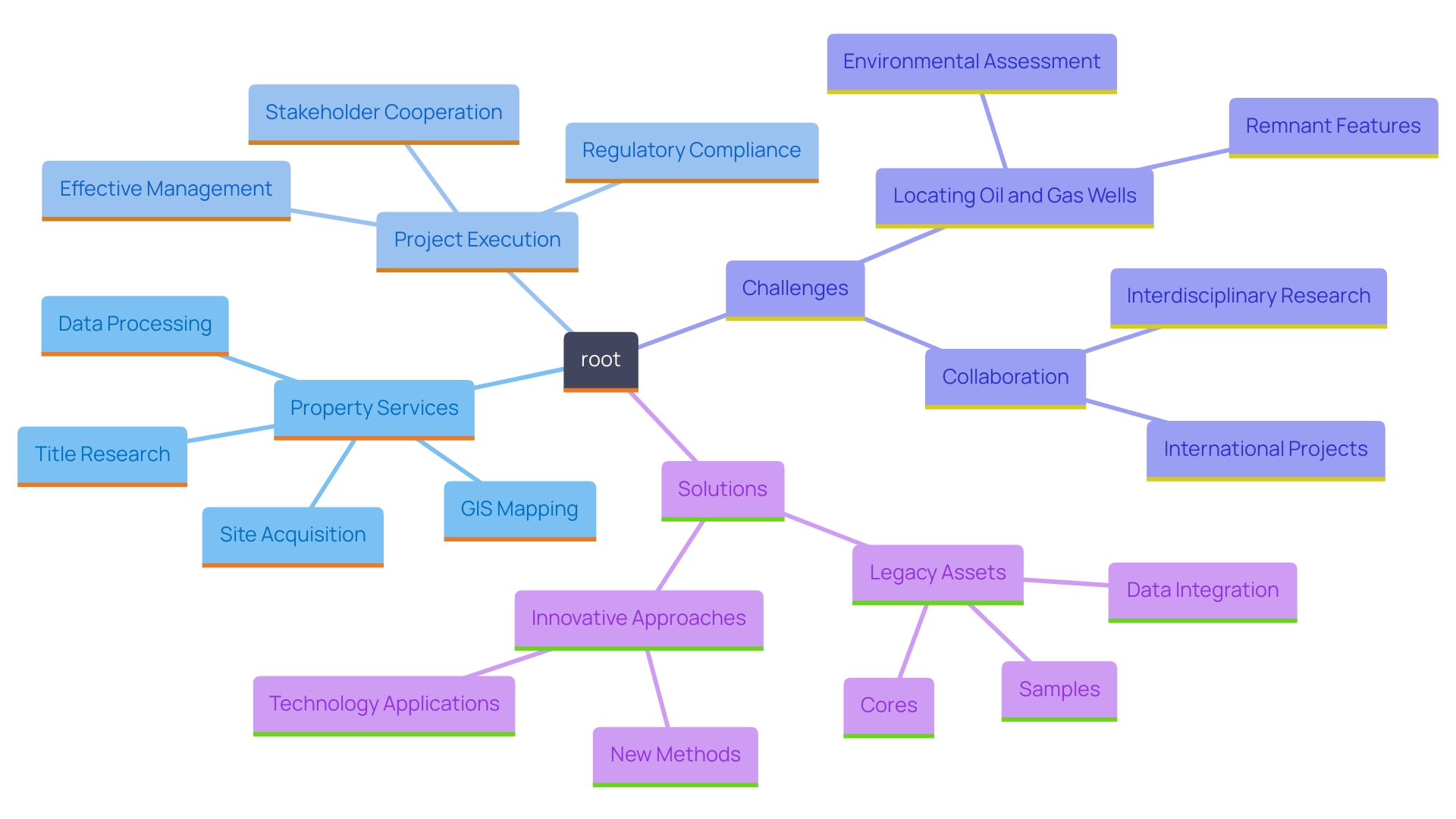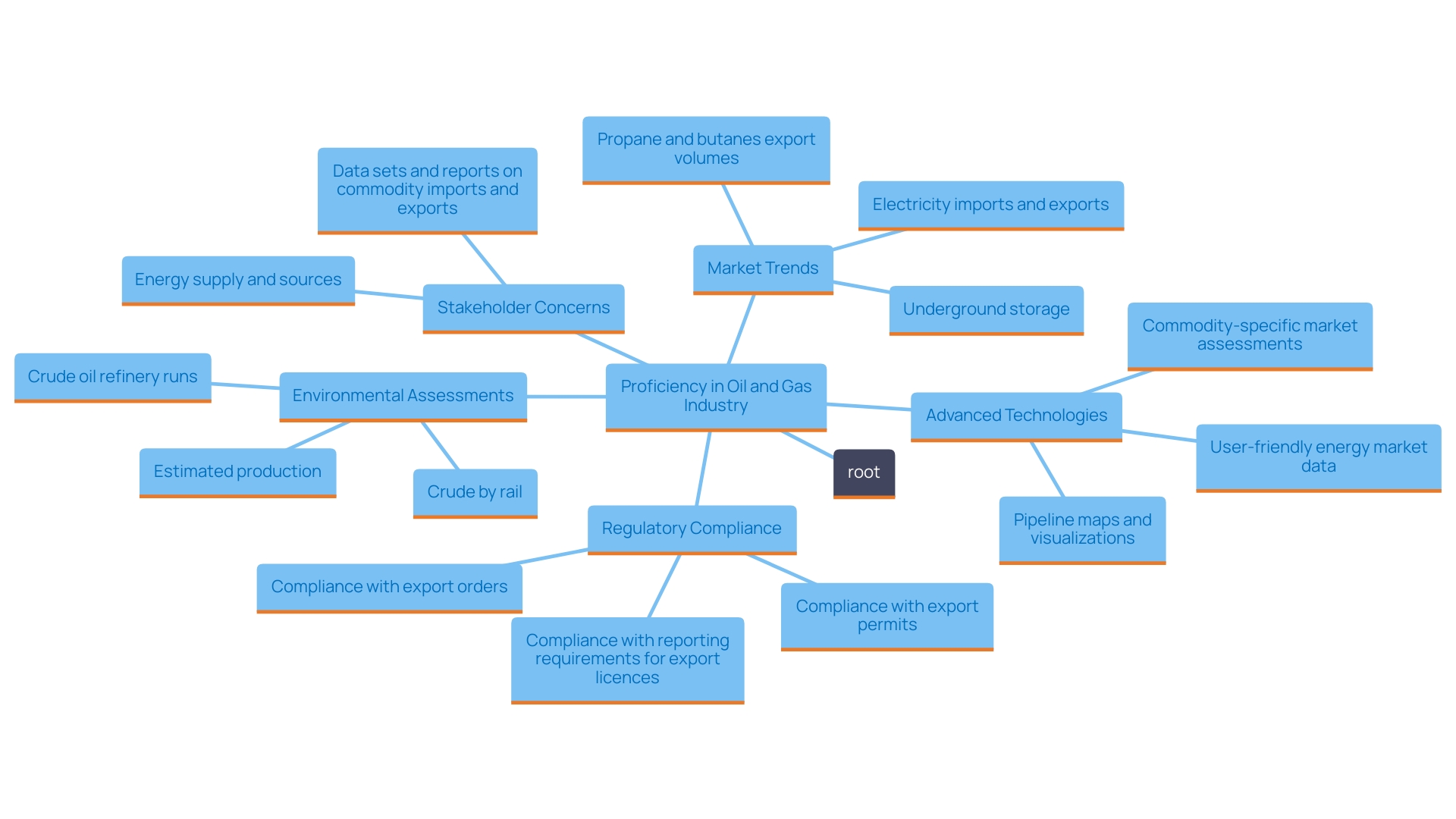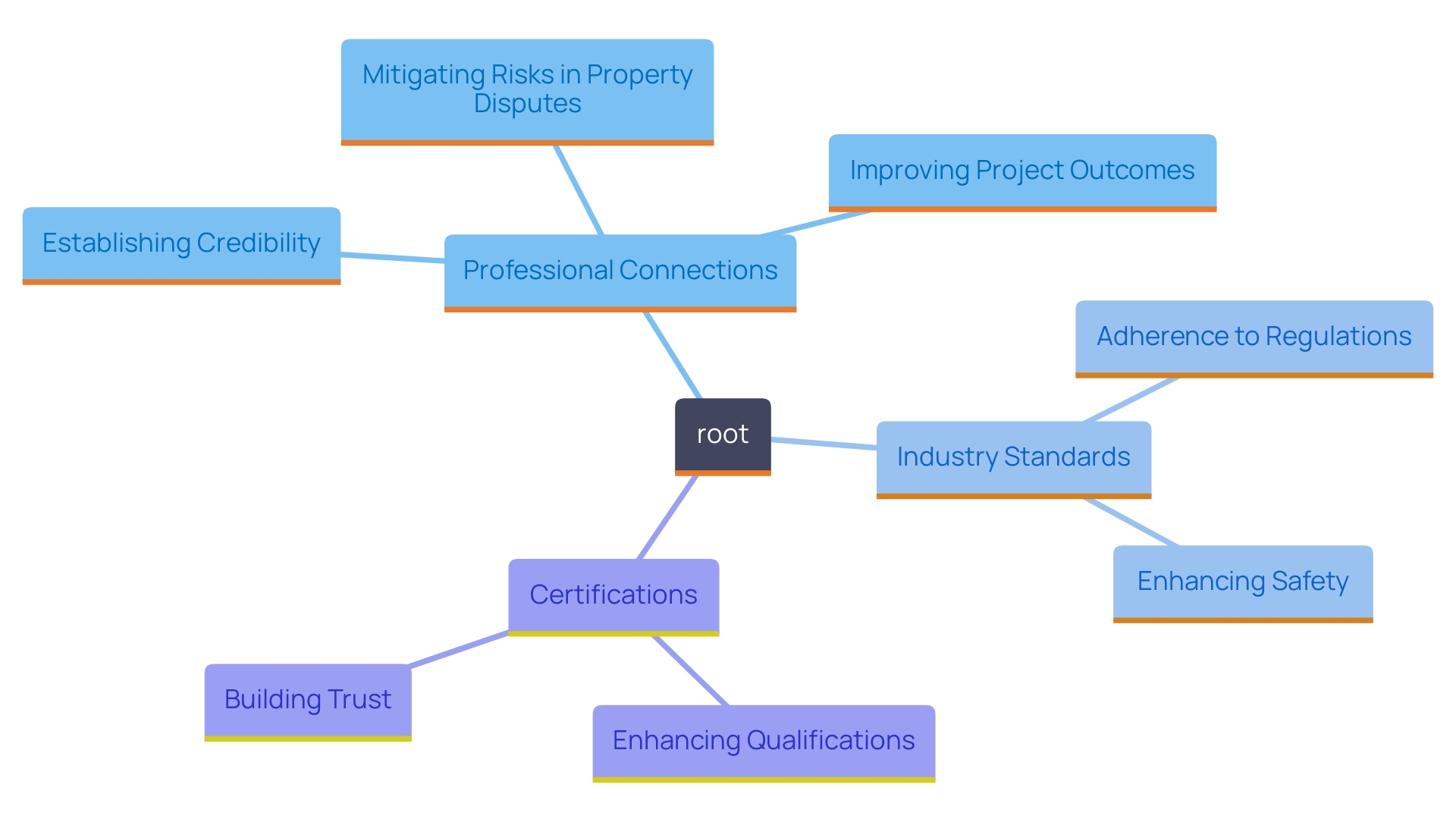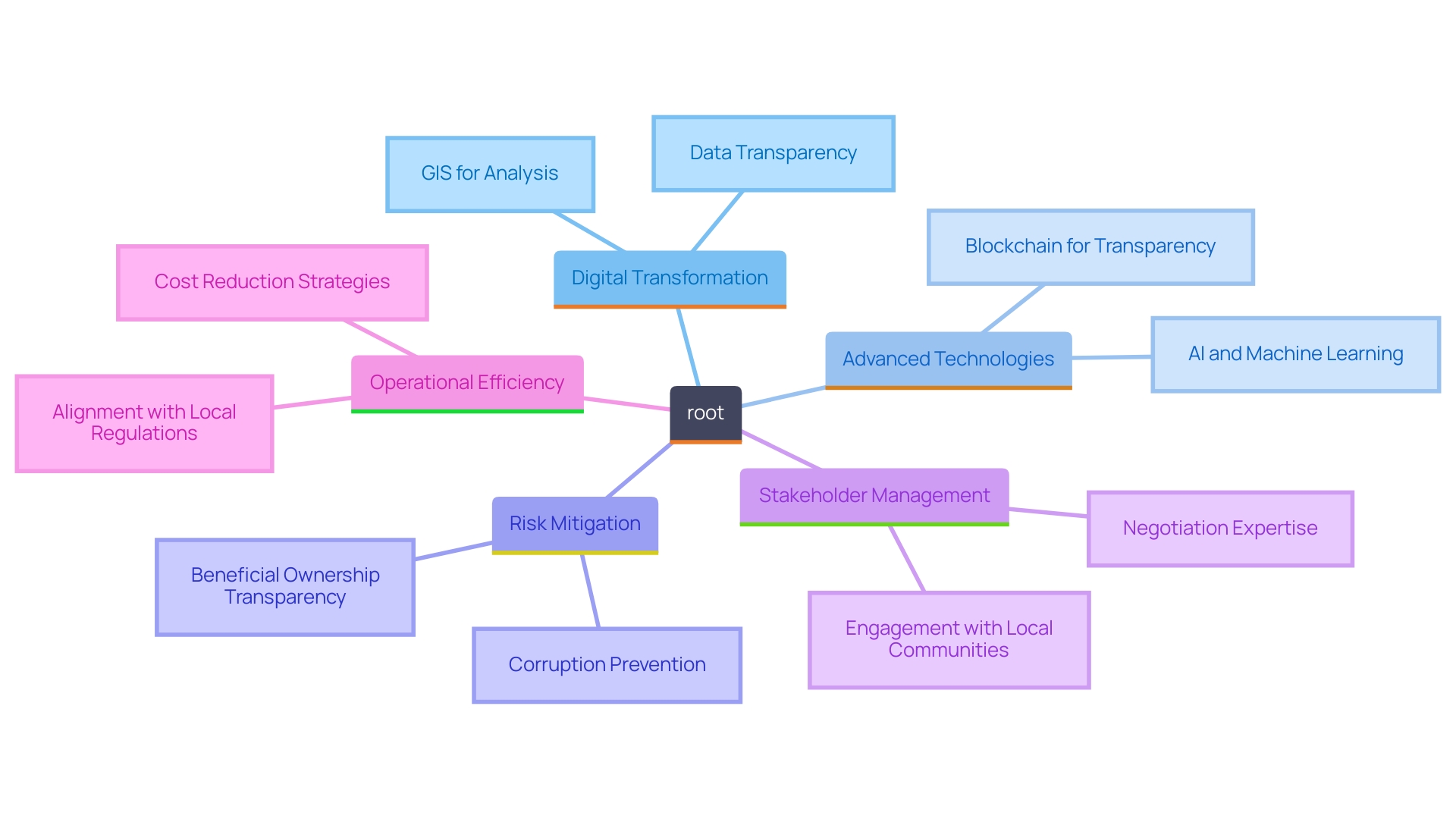Introduction
The oil and gas sector relies heavily on comprehensive land services to facilitate the successful execution of development projects. These services encompass a wide range of essential functions such as site and right-of-way acquisition, detailed title research, Geographic Information System (GIS) mapping, and thorough data processing. In an industry marked by regulatory complexities and environmental considerations, effective land acquisition is not just a logistical necessity but a strategic imperative.
Challenges such as identifying undocumented oil and gas wells and navigating evolving regulations heighten the importance of these services. By employing advanced technologies and specialized knowledge, companies can optimize operations, ensure compliance, and foster collaboration among stakeholders. This article explores the critical components of land services in the oil and gas industry, highlighting the expertise required, the value of professional affiliations, and the key benefits of partnering with specialized service providers.
Overview of Services Offered
Extensive property services in the oil and gas sector play a pivotal role in ensuring the smooth execution of development projects. These services encompass a variety of critical functions, including site and right-of-way acquisition, in-depth title research, Geographic Information System (GIS) mapping, and meticulous data processing.
Effective site acquisition is crucial, especially considering the complexities involved in finding and securing property for energy projects. For instance, in regions like the Appalachian Basin, the challenge of identifying undocumented oil and gas wells can significantly hinder progress. Remnant features that confirm the presence of wells are often small and obscured by vegetation, complicating environmental assessments and project planning.
Additionally, GIS mapping serves as a powerful tool in this context. By offering thorough spatial analysis, it allows companies to visualize use patterns, evaluate potential environmental impacts, and enhance routes for infrastructure development. This capability is becoming more essential as the sector navigates evolving regulatory landscapes and strives for compliance with stringent environmental standards.
Moreover, thorough data processing ensures that all information related to property acquisition is meticulously organized and easily accessible. This not only aids in maintaining regulatory compliance but also facilitates informed decision-making throughout the project lifecycle. As highlighted by industry specialists, efficient data administration is crucial for promoting cooperation among stakeholders, which is necessary in tackling the complex issues posed by acquisition in the energy sector.
In summary, integrating these comprehensive property services equips oil and gas companies to tackle site-related challenges more effectively while ensuring adherence to regulatory requirements.

Expertise and Industry Focus
Proficiency in the oil and gas industry is crucial for the efficient provision of thorough property services. Professionals in this field must navigate a myriad of complexities that accompany land acquisition, including compliance with intricate state and federal regulations, conducting thorough environmental assessments, and addressing the diverse concerns of stakeholders.
Specialized knowledge in oil and gas enables these experts to devise tailored solutions that align with the specific operational needs of companies within the sector. For instance, a robust understanding of current energy deals and transactional considerations is necessary to facilitate smooth negotiations and ensure compliance with regulatory frameworks. As noted by Eric C. Camp, a Board Certified expert in Oil, Gas, and Mineral Law, the ability to manage complex legal landscapes and protect property rights is paramount to successful transactions in this sector.
Additionally, knowledge of market trends is crucial. Recent developments indicate a shift towards sustainable practices, as highlighted by initiatives such as the World Bank's USD 50 million regional platform aimed at enhancing energy access in Eastern and Southern Africa. This highlights the increasing significance of balancing energy requirements with environmental factors, making it essential for property service experts to remain informed about changing regulations and optimal methods.
The integration of advanced analytics and mapping technologies is also becoming increasingly vital. Companies that leverage comprehensive and current data can enhance their strategic planning, maximizing opportunities while minimizing risks. As the landscape of the oil and gas sector continues to evolve, the demand for knowledgeable professionals who can navigate these complexities will only increase.

Professional Affiliations and Certifications
Maintaining professional connections and certifications is vital for establishing credibility within the services sector, particularly in the oil and gas fields where accuracy and adherence are crucial. Organizations that align with industry standards often become members of professional associations, enhancing their authority and fostering trust among clients and stakeholders.
"Certifications in project management and property surveying not only enhance qualifications but also guarantee that clients obtain expert guidance customized to their specific needs.". For instance, a comprehensive survey of the terrain, conducted by certified professionals, establishes precise property boundaries and identifies critical features of the area. This process mitigates the risk of boundary disputes, which can lead to costly legal conflicts and project delays.
As noted in industry literature, understanding topography and legal conditions through thorough property surveys is vital for effective planning and development. Such surveys reveal discrepancies like overlaps or gaps, ensuring compliance with local regulations and safeguarding the interests of all parties involved.
In an evolving environment influenced by emerging trends, professionals equipped with the latest knowledge and certifications are better positioned to navigate complexities in property acquisition. As emphasized by recent reports, remaining knowledgeable about these trends enables planners and property acquisition directors to make strategic, data-driven choices that improve project success and community impact.

Key Benefits of Working with Land Service Providers
'Interacting with specialized terrain service providers offers substantial benefits for oil and gas firms, especially in improving the efficiency of property acquisition procedures.'. Leveraging advanced technologies and data management systems not only streamlines operations but also mitigates the risks associated with compliance and legal challenges. For instance, companies can utilize Geographic Information Systems (GIS) for critical analyses, such as predicting visibility constraints on potential project sites. This approach reduces the time spent on manual assessments and enhances accuracy in decision-making.
Moreover, a dedicated team of professionals adept in negotiation can navigate complex stakeholder dynamics effectively. This is essential, as the sector often struggles with opposing interests between landowners, regulatory bodies, and environmental considerations. With a focus on holistic resource management, companies can ensure that their operations align with local regulations and community needs.
As highlighted in recent industry discussions, the oil and gas sector is on the brink of a digital transformation, driven by the necessity to reduce costs while enhancing operational efficiency. Companies that harness digital solutions can not only expedite project timelines but also gain a competitive edge in a rapidly evolving market. By integrating comprehensive data insights and expert analyses into their land acquisition strategies, oil and gas firms can position themselves to capitalize on emerging opportunities while effectively managing inherent risks.

Conclusion
Comprehensive land services are vital for the successful execution of oil and gas development projects. These services, which include site acquisition, title research, GIS mapping, and data processing, help navigate the complexities of land acquisition, particularly in areas with undocumented oil and gas wells. Advanced technologies and meticulous data management improve regulatory compliance and enhance decision-making.
Expertise in the oil and gas sector is essential for effective land services. Professionals must navigate intricate regulations and conduct thorough environmental assessments while addressing stakeholder concerns. Specialized knowledge allows for tailored solutions that facilitate negotiations and ensure legal compliance.
Staying updated on trends, such as sustainability initiatives, is crucial in this evolving landscape.
Maintaining professional affiliations and certifications bolsters credibility in the land services sector. Certified professionals conduct precise property surveys, minimizing risks of boundary disputes and legal conflicts. This expertise is essential for planning and ensuring compliance with local regulations.
Engaging specialized land service providers offers significant advantages. These providers streamline operations and mitigate compliance risks through advanced technologies and data management systems. Skilled negotiators effectively manage stakeholder dynamics, aligning operations with regulatory requirements and community needs.
As the industry undergoes digital transformation, integrating comprehensive data insights into land acquisition strategies positions firms to capitalize on emerging opportunities while managing risks effectively.




